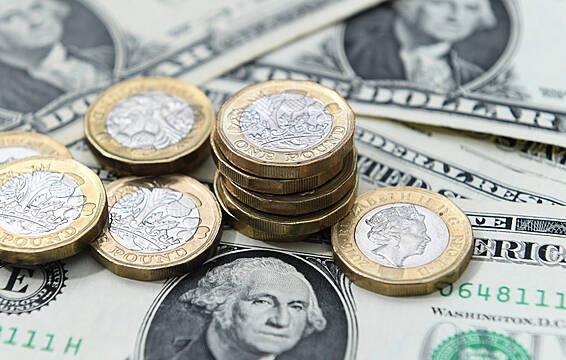The pound has taken another hammering while London’s blue chip share index slumped into the red after the UK government was heavily criticised by the International Monetary Fund (IMF) over its handling of economic policy.
Sterling fell back to 1.06 US dollars at one stage, having recovered to 1.08 US dollars on Tuesday after Monday’s bloodbath saw it reach an all-time low against the greenback.
The FTSE 100 Index also fell sharply after opening on Wednesday, falling more than 2 per cent at one stage – down nearly 140 points at 6846.4 – and appearing to head for its lowest level for more than a year.
The stock sell-off followed market losses in the US overnight and as the IMF put further pressure on British chancellor Kwasi Kwarteng, warning that his deep tax cuts would fuel both inflation and inequality.
The pound plunged to a record 1.03 US dollars on Monday after Mr Kwarteng’s tax cutting mini-budget and there are fears it could head towards parity unless the UK government can ease financial market fears over its plans to slash taxes.
Susannah Streeter, senior investment and markets analyst at Hargreaves Lansdown, said: “The IMF’s move has added to worries that the UK is fast taking on the characteristics of an emerging market economy, and risks ditching its developed country status.
“It’s now not only wracked with trade disruptions, an energy crisis and soaring inflation, but it’s also being closely monitored by the international body known as the world’s lender of last resort.”
The Bank of England is facing calls to convene an emergency meeting to consider hiking interest rates to try and counter the government’s tax cut measures.
The bank’s chief economist, Huw Pill, said on Tuesday a “significant monetary response” may be required, but signalled this would not come until policymakers are due to meet as scheduled in November.
Craig Erlam, senior market analyst at OANDA, said: “It appears everyone is unusually united in their objection to the Treasury’s tax-cutting plans at a time when inflation is almost 10 per cent and rising.
“Moody’s was equally scathing, warning that the measures are a credit negative that could threaten the country’s credibility with investors and more permanently weaken the UK’s debt affordability.
“It’s no surprise then to see sterling plummet once more alongside Kwasi Kwarteng and Liz Truss’s credibility on the world stage. Not the best start to life in Downing Street.”







